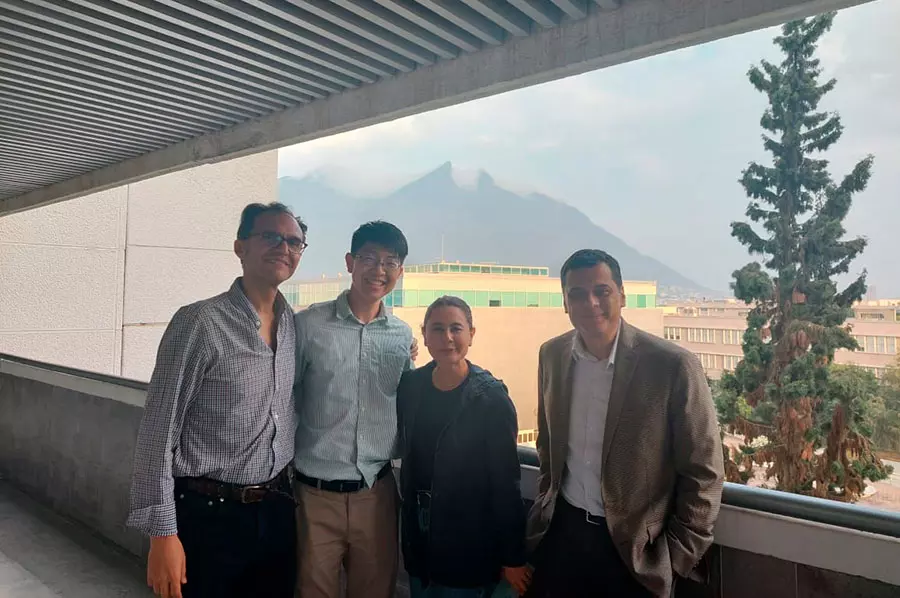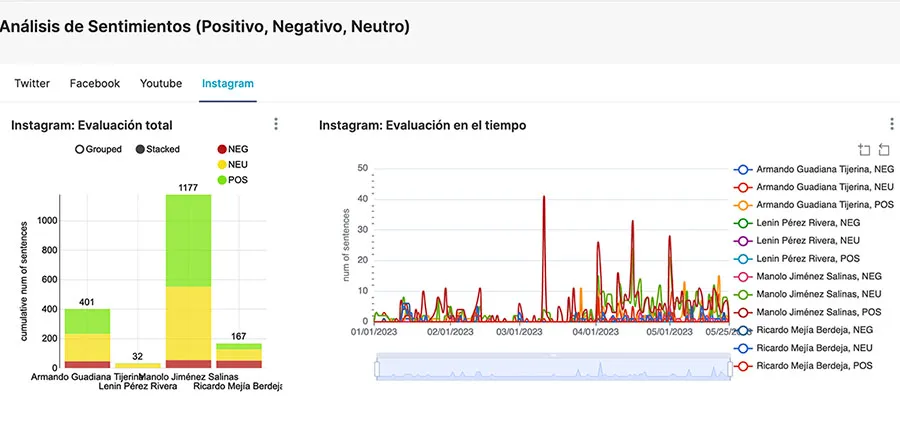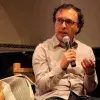Professors Alejandro Martín del Campo, from Tec de Monterrey, and Zhouhan Chen, from New York University (NYU), have developed a platform which collects and analyzes data about election candidates from social networks.
“Monitoring Digital Conversations and Multi-Platform Analysis of Feelings in Electoral Contexts” is the name of the project which analyzes information published on Twitter, Facebook, Instagram, and YouTube.
“It’s about understanding how both narratives and misinformation pass from one platform to another, and how they spread. It’s complex because the dynamics are very different, and we know that false information proliferates in electoral periods,” said Martín Del Campo.
“We’re building an artificial intelligence-based information tracker, which provides a system for collecting social media data from different platforms,” Zhouhan Chen explained.
The researchers pointed out that different algorithms are used for the analysis, which is finally displayed on a website to provide information to journalists and researchers.

How does this project work?
The Tec and NYU professors got in touch with each other to develop the project.
Zhouhan Chen has spent several years developing different tools which collect information through application programming interfaces (APIs) to share it with researchers.
“Over the years, I’ve developed different types of data collection tools and I’ve also had access to some APIs for those platforms, so that’s how I was able to gather data from different platforms which researchers can access.
“The challenge lies in platforms like Twitter, for example. It has changed its rules repeatedly, and that’s very challenging because it means we have to be very agile and adapt to the platform changes,” Zhouhan explained.
This project measures interactions, feelings analysis (positive, negative, neutral), main stakeholders, word clouds, and network analysis.
The project is a collaboration between the Information Tracer team and the School of Humanities and Education at Tecnológico de Monterrey.
Yuqing Cui and Shiqi Yang, from NYU, also participated in the project.
“It’s about understanding how both narratives and misinformation pass from one platform to another, and how they spread.” - Alejandro Martín Del Campo
The first test: Elections in Coahuila
The professors shared that they did an initial test focused on the upcoming elections for governor of Coahuila, which will be held on June 4.
“This is like a first example: it’s a first exercise in how we can begin to explore and research multi-platforms,” explained the Tec professor.
“In the context of Coahuila, information about each of the candidates was extracted and people were able to see what was going on behind each individual,” he added.

“There are four candidates in Coahuila at the moment, and we’ve used the data tracker to find posts regarding each candidate. We then generate graphs comparing the popularity of those candidates on social media.
“We also look at general feelings and different narratives about those candidates. There’s a lot of information and we hope it’ll be useful for students studying journalism and for journalists covering the election campaign,” Zhouhan explained.
The professors’ goal is to get the platform ready to provide information about the 2024 Mexican presidential elections.
ALSO READ:





